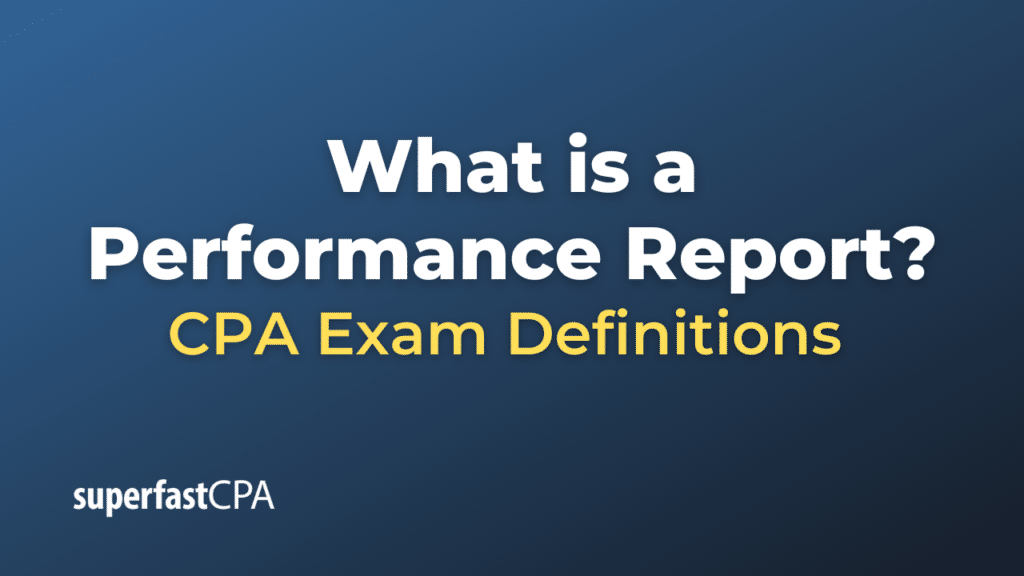Performance Report
A performance report is a document that provides detailed information about the performance of an individual, a department, a project, or an entire organization over a specific period of time. The purpose of a performance report is to track progress, assess outcomes, and provide a basis for decision-making and improvements.
In a business context, performance reports typically include key performance indicators (KPIs), targets, actual results, and variances. They may also include analysis or explanations of the results, as well as recommendations for actions to improve performance.
Here are few examples of performance reports:
- Employee Performance Report: This type of report is often used in performance reviews and might include information on an employee’s achievements, completed tasks, goals, strengths, weaknesses, and areas for improvement.
- Project Performance Report: This report is usually used in project management to provide information on the status of a project, including the project schedule, budget, scope, and quality. It might also include information on risks and issues, and actions to address them.
- Company Performance Report: This is a comprehensive report on a company’s performance. It may include financial indicators such as revenue, profit, cash flow, and return on investment, as well as non-financial indicators such as customer satisfaction, market share, and employee turnover.
The format and content of a performance report can vary widely depending on its purpose, the audience, and the nature of the performance being evaluated. The key is to provide clear, accurate, and relevant information that helps to understand performance and guide decision-making.
Example of a Performance Report
Let’s consider a hypothetical example of a project performance report for a project named “TechRevamp”.
Project Performance Report for TechRevamp
1. Project Status:
2. Schedule:
- Project is on schedule with key milestones being achieved as planned.
- Next Milestone: “Beta Testing,” due to begin on August 15th, 2023.
3. Budget:
- Total Budget: $500,000.
- Amount Spent: $275,000.
- Variance: $25,000 over budget due to unexpected software licensing costs.
- Explanation: Licensing costs for new project management software were higher than initially anticipated.
4. Scope:
- All tasks and deliverables are as per the original project scope.
- No changes in project scope were made during this reporting period.
5. Quality:
- All deliverables so far meet the quality standards set at the project initiation stage.
- No quality issues were reported during this reporting period.
6. Risks and Issues:
- New Risk Identified: Potential delay in obtaining regulatory approvals may impact project timeline.
- Mitigation Plan: Engage with regulatory consultants to expedite the approval process.
7. Recommendations for upcoming period:
- Engage with the software vendor to negotiate on licensing costs to bring the project back within budget.
- Begin preparatory work for “Beta Testing” milestone.
This report provides a snapshot of the project’s performance at this point in time and helps stakeholders understand how the project is progressing. It also helps the project manager to identify and address any issues or risks that may impact the project’s success.














